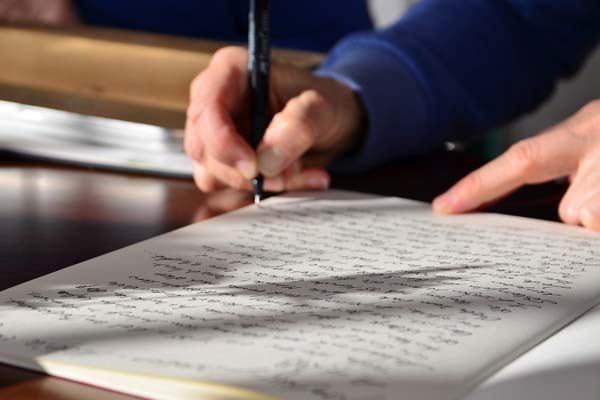IB Mocks Exam: Strategies from the Experts!
Mock exams are essential to the International Baccalaureate (IB) curriculum. These exams are designed to prepare students for the final exams, culminating their years of study.
The IB mock exams serve as a platform for students to assess their understanding and proficiency, pinpointing areas that require further attention.
These mock tests mirror the structure and substance of the final exams, ensuring that students are exposed to the rigor and breadth of topics, from math and science to languages and the humanities.
Students are expected to demonstrate their understanding of critical concepts and their ability to analyze and evaluate information.
The significance of mock exams in the International Baccalaureate (IB) curriculum cannot be overstated. These exams are essential for students to prepare for the final exams and provide valuable feedback on their progress.
By taking mock exams, students can identify areas where they need to focus their study efforts, and they can develop strategies for improving their performance.
The mock exams are an essential component of the IB curriculum, significantly aiding students in reaching their educational objectives.
Purpose Of The IB Mocks Exam
IB Mock Exams are designed to prepare students for the final IB exams. They are mandatory exams typically held a few months before the actual exams.
The purpose of IB Mock Exams is to assess students’ preparedness for the final IB exams and provide feedback on areas of improvement.
IB Mock Exams closely resemble the actual exams required for obtaining IB diplomas. They come with precise instructions and usually have fewer questions, but these questions demand comprehensive and well-considered responses.
Engaging in these mock exams provides students with a clear insight into the final exams’ layout and potential question types.
🌟 Hey Students! 🚀 Ready for the ultimate experience? Join us on Studentsinside.com's Facebook, YouTube, WhatsApp, and LinkedIn. Click now for tips, fun, and success vibes! 🌈✨ #StudentLife #JoinUs
Furthermore, the IB Mock Exams serve as a diagnostic tool. Students can pinpoint their strong and weak areas by evaluating their results, allowing them to tailor their revision strategies.
This targeted approach enhances their readiness for the final exams and boosts their likelihood of performing well.
Structure Of The IB Mocks Exam
IB Mock Exams are designed to prepare students for the actual IB Diploma exams. They are similar in structure and format to the actual exams, with specific instructions. The structure of the IB Mock Exams is as follows:
Overview of the format and types of questions
The IB Mock Exams are split into Paper 1 and Paper 2. Paper 1 features multiple-choice questions, whereas Paper 2 focuses on long-answer questions. Both papers assess the student’s grasp and comprehension of the topic.
The types of questions in the IB Mock Exams are similar to those in the actual IB Diploma exams. They require in-depth, well-thought-out answers demonstrating the student’s understanding of the subject matter.
Duration and scoring mechanism
The length of IB Mock Exams fluctuates based on the subject, but they typically last between 2 to 3 hours. These exams are rated on a 1 to 7 scale, with 7 being the pinnacle.
This scoring system mirrors that of the official IB Diploma exams. IB examiners grade these tests, employing specific criteria to evaluate a student’s performance.
These standards focus on the student’s grasp of the topic, analytical and evaluative skills, and ability to convey their thoughts.
Preparation Strategies
Preparing for IB mock exams can be a daunting task for many students. However, it can be less stressful and more manageable with the right strategies.
Here are some preparation strategies that can help students excel in their IB mock exams.
Study Tips Tailored for the IB Curriculum
The IB curriculum is known for its rigor and depth. Students should tailor their study techniques to the curriculum to prepare for mock exams.
This means focusing on understanding and applying concepts in different contexts rather than memorizing information. Students should also supplement their learning with resources such as textbooks, notes, and online materials.
Another effective study technique is to create study groups with classmates. This allows students to share ideas, clarify concepts, and test each other’s knowledge. Additionally, students can benefit from seeking help from their teachers or tutors when encountering difficulties.
Importance of Utilizing Past Mock Exam Papers
The IB mock exams are designed to simulate the actual IB exams. Therefore, utilizing past mock exam papers is an effective way to prepare for the exams.
Students should practice with numerous past papers to understand the question format and structure. By doing so, they can anticipate potential exam questions and enhance their test-taking abilities.
Time Management Techniques for Effective Revision
Managing your time well is critical to doing well in IB mock exams. Make a study plan that gives enough time to each subject and topic.
They should also prioritize their revision based on their strengths and weaknesses. For example, if students struggle with a particular topic, they should allocate more time to revise it.
Students need to incorporate breaks while studying to prevent exhaustion. These pauses can be brief moments to stretch, stroll, or grab a bite.
Furthermore, adequate sleep and regular exercise are crucial for students to uphold their physical and mental health.
Benefits Of Taking The Mocks Exam
IB Mock Exams are an essential part of the International Baccalaureate (IB) program, offering several benefits to students. Here are some of the advantages of taking the IB Mock Exams.
Gaining confidence and reducing exam anxiety
One of the most significant benefits of taking the IB Mock Exams is that it helps students gain confidence and reduce exam anxiety.
Mock exams give students a sense of what to expect on the exam day, and this familiarity can help reduce anxiety and stress.
Identifying strengths and weaknesses in subject areas
Taking the IB Mock Exams offers students the advantage of pinpointing their strong and weak points in various subjects. Through these mock tests, students can assess their achievements and decide on the areas that require more attention during their study sessions.
Familiarizing with the exam environment and format
Finally, taking the IB Mock Exams helps students become familiar with the exam environment and format. This familiarity is essential because it helps students feel more comfortable and confident during the exam.
Additionally, students can learn how to manage their time effectively during the exam and develop strategies for answering different exam questions.
Post Mocks: Analyzing Results
After the mock exams, it is essential to analyze the results to understand the strengths and weaknesses of the students. This analysis will help create a revision plan focusing on the areas that need improvement.
Understanding the feedback and score breakdown is crucial to analyze the performance accurately. The score breakdown will clearly show the student’s performance in each subject. It will help identify the areas where the student needs to focus more attention.
Teacher feedback will provide valuable insights into the student’s performance. It will highlight the areas where the student needs to improve and where the student is performing well.
Creating a revision plan based on mock exam performance is the next step. The plan should focus on the areas where the student needs to improve.
It should include a timeline to cover all the topics and allocate more time to the areas that need improvement. The plan should be realistic and achievable, and the student should follow it diligently.
Seeking guidance from IB educators and mentors can also be helpful. They can provide valuable insights into the student’s performance and suggest ways to improve. They can also guide in creating a revision plan that focuses on the areas that need improvement.
Differences Between Mocks And Final IB Exams
Mock exams aim to replicate the real IB exams, though they possess distinct variations. This section will delve into these contrasts and shed light on the evaluation standards for both tests.
Comparing the level of difficulty and content coverage
Mock exams are usually less complicated than the final IB exams.
This is because they are designed to help students prepare for the final exams by testing their knowledge and understanding of the subject matter.
The content coverage in mock exams is also usually less extensive than in the final exams.
The final IB exams are more challenging than mock tests. They cover many topics and expect students to understand the material strongly.
Insights into the grading criteria for both exams
The grading standards for both mock exams and final IB exams are alike. Both tests evaluate the student’s comprehension and grasp of the subject content. These criteria include:
- Knowledge and understanding of the subject matter
- Application of knowledge and experience to new situations
- Analysis and evaluation of information
- Organization and communication of ideas
However, the grading criteria for the final exams are generally more stringent than for mock exams. This is because the final exams determine the student’s final grade for the course, while mock exams are used as a tool for preparation.
Conclusion
In conclusion, while mock and final IB exams are similar in many ways, the two have some critical differences. Mock exams are designed to be less complicated and cover less content than the final exams, while the grading criteria for the final exams are generally more stringent.








